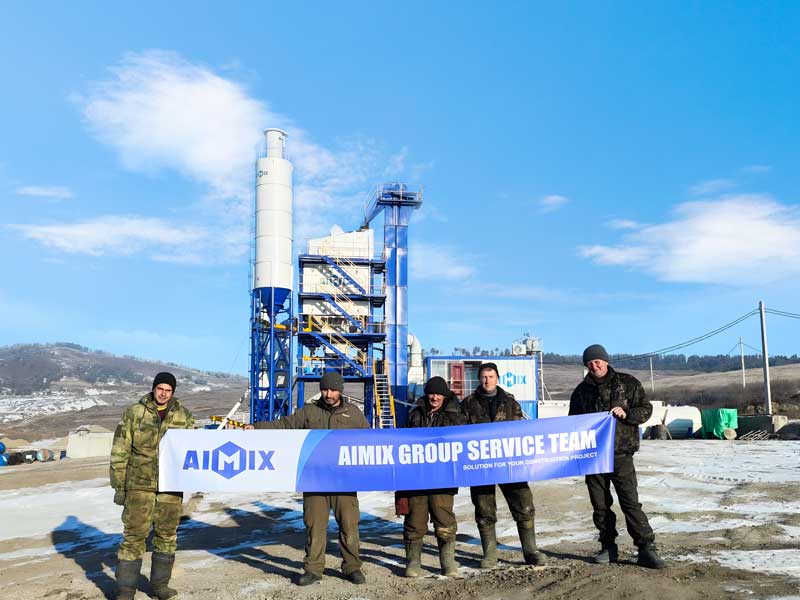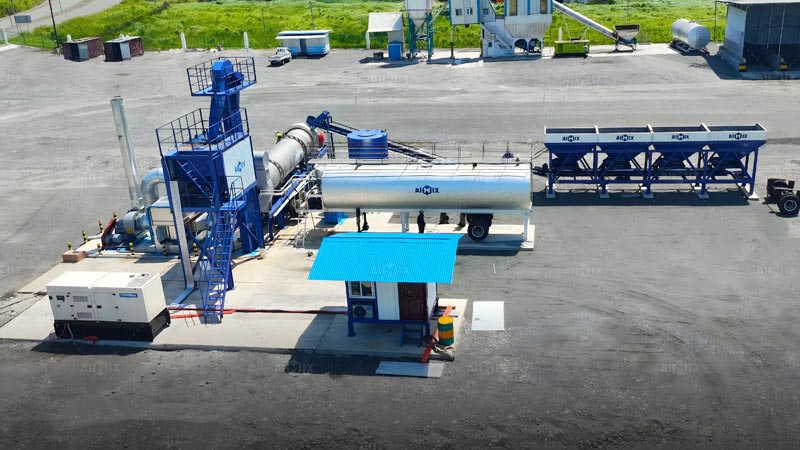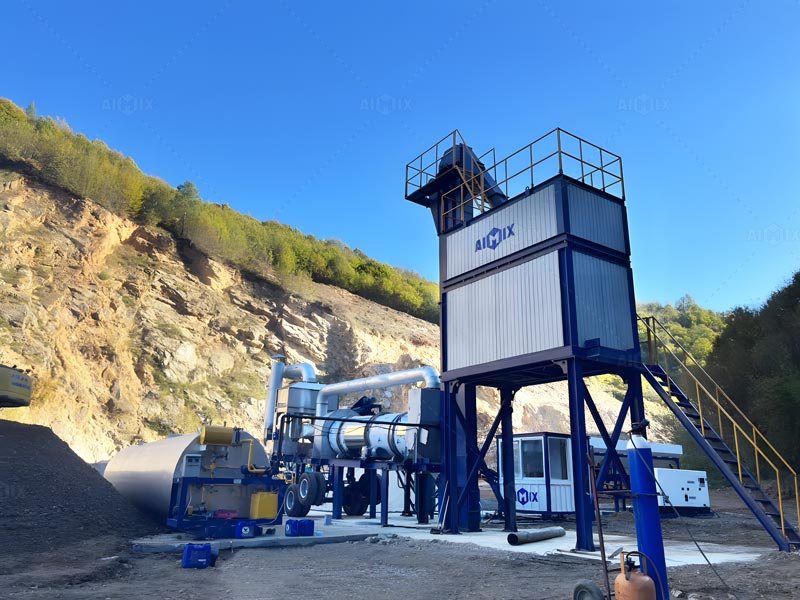Asphalt plants are central to road construction projects, but their prices can vary significantly depending on the types of asphalt mixtures they are designed to produce. From dense-graded hot mix to porous asphalt and polymer-modified bitumen, each mixture requires specific configurations and components. These differences directly affect the asphalt plant price, especially when considering mobile and drum mix asphalt plant options.

Understanding Asphalt Mixtures and Their Production Needs
Before diving into pricing, it’s important to understand the characteristics of various asphalt mixtures and the implications for plant design. Asphalt is not a one-size-fits-all material. Roads, highways, airport runways, and parking lots all require different formulations to meet load-bearing, weather resistance, and longevity requirements.
1. Standard Hot Mix Asphalt (HMA)
This is the most commonly used type of asphalt. It’s produced at high temperatures (typically 280-320°F) and requires precise heating and drying systems. Plants producing HMA must have powerful burners and efficient drum or batch systems. As a result, the asphalt plant price(precio de planta de asfalto) for HMA production is higher due to enhanced thermal systems and material handling features.
2. Warm Mix Asphalt (WMA)
WMA is produced at lower temperatures using additives or foamed bitumen technologies. While energy-efficient, it demands auxiliary systems such as chemical dosing pumps and foaming modules. Integrating these features into the plant increases complexity, slightly raising the base asphalt plant price.
3. Cold Mix Asphalt
Used primarily for temporary patching or low-traffic roads, cold mix asphalt doesn’t require heating. Plants producing it are simpler and more cost-effective, especially in remote or rural areas. This makes mobile asphalt plant price particularly attractive for municipalities and contractors working across dispersed sites.
4. Polymer-Modified Asphalt (PMA)
PMA enhances performance under extreme conditions, but its production requires specialized mixing systems, temperature control, and storage tanks. These additions can significantly increase both the equipment footprint and the overall cost of a plant.

How Mixture Types Influence Plant Configuration and Cost
The diversity in asphalt mixtures leads to variation in plant design, which in turn affects costs. The two most common plant types—batch mix and drum mix asphalt plants—offer different degrees of flexibility and investment levels.
Batch Mix vs. Drum Mix Plants
Batch mix plants allow for precise control over each batch, which is essential for high-spec mixes like PMA or WMA. However, they are generally more expensive and require more space. In contrast, a drum mix asphalt plant(planta de asfalto continua) is continuous, simpler in design, and better suited for large volumes of standard HMA. Drum mix plants are typically cheaper but less versatile in producing complex mixtures.
Therefore, a contractor focusing on volume over mix variety might opt for a drum mix asphalt plant, reducing their capital investment. Those targeting specialized markets will lean toward batch plants despite the higher asphalt plant price.
Modular Upgrades and Add-ons
As demand for sustainable and high-performance pavements increases, many operators look to future-proof their investments with modular plants. Adding polymer tanks, foamed bitumen systems, or RAP (reclaimed asphalt pavement) capabilities will increase costs, but enable a broader range of products. This kind of flexibility is especially valuable for mobile asphalt plant operations serving varied project types.

Mobile Asphalt Plant Price Considerations
Mobile asphalt plants are gaining popularity due to their ease of transport and rapid installation. They are particularly advantageous for projects in rural or infrastructure-scarce regions. However, producing multiple mixture types on a mobile setup introduces unique challenges.
For example, incorporating multiple mixing systems or advanced heating elements into a compact design increases complexity and cost. A basic mobile plant may be affordable, but one capable of producing both HMA and PMA will see a jump in mobile asphalt plant price(planta de asfalto movil precio).
Transport logistics also influence price. Larger mobile plants with extensive customization require heavy-duty trailers or cranes for movement, adding to total project costs.
Balancing Price with Production Requirements
Choosing the right plant(planta asfaltos) involves a trade-off between cost and capability. Contractors must evaluate:
- The types of asphalt mixtures needed regularly
- Project location and logistics
- Regulatory requirements (e.g., emissions control)
- Desired production capacity
Ultimately, the more complex and versatile the asphalt mixtures, the higher the plant cost. However, this also opens the door to premium contracts and diverse applications.
Conclusion
The production of different asphalt mixtures has a direct and substantial impact on asphalt plant price. From standard HMA to specialized PMA and cold mixes, each asphalt type imposes unique technical requirements that shape the cost structure. Understanding your specific needs—and balancing them with equipment flexibility and mobility—can help you make a strategic investment, whether you opt for a stationary batch setup or a mobile drum mix asphalt plant.